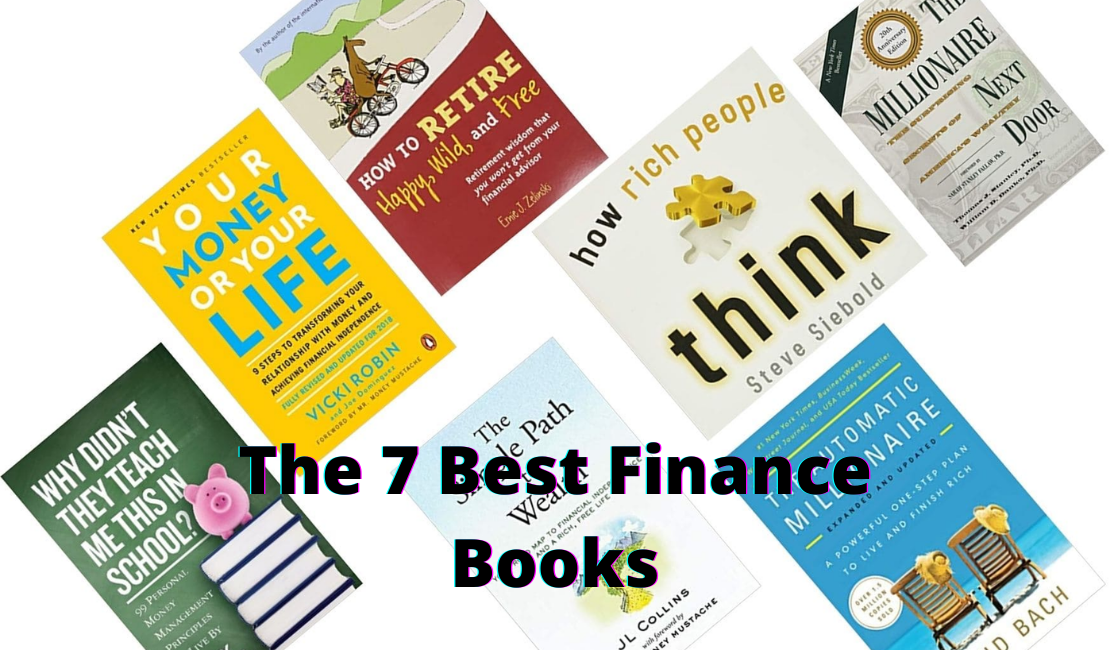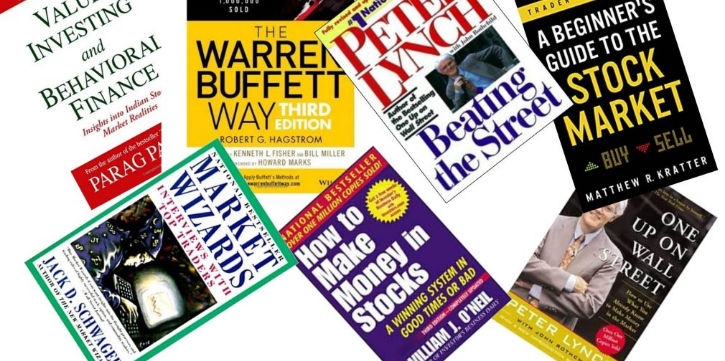According to the 2020 TIAA Institute-GFLEC Personal Finance Index, financial culture in the United States is improving, albeit slowly and moderately. Only 52% of adults surveyed this year answered the question correctly, but that number grew at about 1% per year from 2017 to 2020.
If you’re like most Americans, you haven’t learned much about financial management from your parents. . or your school, so it’s important to look for reliable educational resources, such as personal finance books.
The 7 Best Finance Books
Our picks aim to give you the knowledge you need to feel in control of your money and join the ranks of those turning a new page by educating themselves about money. A good personal finance book is one that provides valuable information about managing expenses, savings, loans, and investments. This selection of the best finance books makes it all in a fun, happy, and accessible package.
Overall best: Wealth options
Equally inspiring and informative, Dennis Kimbra’s “The Wealth Choice: The Success Secrets of Black Millionaires” is a great read for anyone interested in accumulating wealth. dr. Kimbrough, a university professor, motivational speaker, and author at the Napoleon Hill Foundation, combines years of in-depth research with success stories in this 2013 publication. knowledge, making him a readable personal financier who will have a huge impact in the years to come.

Not only is this book highly recommended by Investopedia’s Financial Review Board, but the Choosing Wealth research is top-notch. For seven years, Kimbrough and his colleagues conducted an in-depth study of 1,000 black millionaires to find out how and why some people make a lot of money, even if they come from humble backgrounds. During his conversations with the black millionaires described in the book, Kimbrough shows readers how they can apply the techniques of the rich to help them achieve financial success.
Best investment introduction: Investment 101
Not many investment books are interesting enough to put on the coffee table, but Michelle Kagan’s “Investment 101” is one of them. Between the covers of this book, readers will find a well-written introductory soup in its layers.
The manual and the first part, this book, and the rest of the 101 series will not give you tips on how to win the market but will give you a good knowledge of how the different financial vehicles work and the differences between the different types. How to create a comprehensive portfolio for long-term investment and growth.
Kagan, a Chartered Accountant (CPA), excels at providing readers with simple but comprehensive definitions of vehicles and complex financial concepts. Investing 101 is the perfect book for those who want to learn more about the world of investing, as well as for those who are looking for an investment resource that moves from time to time for advice. Cagan’s simple approach and lack of editing make this book a great introduction to investing.
Best budget introduction: Easy Money
A good read is “Til Date Do Us Part” from Jill Vaz-Oxlade’s Canadian personal finance TV show “Easy Money”. Vaz-Oxlade’s writing style and years of working as a personal finance guru shine through in this short guide that guides readers on how to budget and what to include in a budget.
The best thing about the April 2020 “Easy Money” headline is the timelessness of the tips and the accessibility of the budget method. While other budget books emphasize endless monitoring and adjustment, Vaz-Oxlade’s revered budget system requires no applications, software, math, or technical skills.
It applies to both high-income and low-income people and can be applied anywhere in the budget, apart from some references to Canadian investment vehicles. Vaz-Oxlade’s budgeting method revolves around estimating current spending, improving the curriculum, and then maintaining control through budgeting and prioritization. Even the most budget-friendly readers will switch from Easy Money ready to take over their finances.
The best for behavioral economics: Dollars and logic
The idea that our spending decisions are about logic and education has long been rejected. We now know that our financial decisions are often based on unconscious feelings and desires. In Dollars and Sense by Dan Ariely and Jeff Kreisler: How We Think About Money and How We Spend Smartly, readers discuss how the human mind works when it comes to money.

Duke Ariely, Professor of Psychology and Behavioral Economics at Duke University, James B. Duke, and comedian Kressler are an excellent reading couple, combining seamless science fiction with fun real-world examples.
If you’re interested in such things, it’s worth falling for the immersion cost of making people spend more, and what we do with our environment and mental state. How money affects our willingness to spend and, ultimately, why it affects so many of us lose control of our spending.
Unlike many books on behavioral economics and popular psychology books, Dollars and Sense not only describes problematic ways in which people can gain virtual access to money but also help us overcome our irrational financial habits. It also offers real, actionable tips.
The best for credit repair: Perfect Credit
Lynette Khalfani Cox has 15 books on money management, but Perfect Credit, first published in 2010, is one of the best in credit ratings because it provides clear and applicable guidelines for improving credit. Yes, step by step. Additionally, according to Experian Report 3 2019, nearly a third of Americans have high-risk credit. The need for books to improve credit scores is obvious.
Although the theme is often scary, “Perfect Credit” manages to be fun, friendly, and upbeat. Khalfani Cox’s voice makes readers feel like they’re receiving trustworthy advice from their best friend, a former Wall Street Journal reporter. The book also covers important and often overlooked issues, such as how to negotiate with creditors and how to control overspending to prevent the overuse of credit in the future.
Best Student Loan Management: Debt-free degrees
A Debt Free Degree is ideal for parents who not only want to help their children avoid piles of debt but also want to learn how they can prepare their children for college, what classes their children should take in high school, and how to choose the best schools and majors. In this National Bestseller 4, author Anthony O’Neill explains in detail how to earn a college degree for cash.
While most headlines focus on the inevitability of being distracted by student loans, Oneal offers an achievable alternative approach to getting a great higher education. Thanks to Oneel’s stories about working as a radio personality and public speaker, “Debt Free Degrees” is also fun to read. It is important to note that this book is intended for parents whose children are not yet in college.
The best for money management: your money or your life
The last incarnation of “Your Money or Your Life” by Vicki Robin and Joe Dominguez was updated in 2018, but the main message remains the same as the original 1992 bestseller: Money alone can’t buy happiness. Despite its victories, this personal finance guide remains the best book for building wealth and learning plans for a healthy relationship with money — plus, recommended by Investopedia’s Financial Review Board.
The nine steps outlined in the book are the spiritual son of Dominguez, an independent millionaire who took his first job at the age of seven just to support his family. Robin’s ability to translate Dominguez’s steps into easy-to-digest money instructions teaches readers not only how to handle money, but also how to approach and think about money and priorities sets this guide apart from other similar titles.
The phrase “your money or your life” won’t show you the right steps to take in your pursuit of financial freedom, but it will do so in a way that changes your money, consumerism, gratitude, and meaning. ”